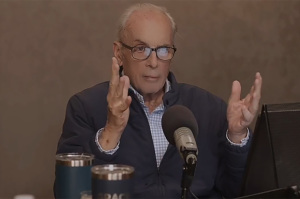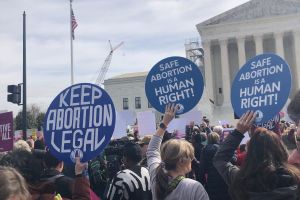High Court Asked to Review Scope of 'Ministerial Exception'
The Supreme Court is being asked to review a decision that on whether "ministerial exception" – which allows religious entities to give preference in employment to individuals of a particular religion or require that employees confirm the organization's religious tenants – applies not just in the employment of pastors but also to that of teachers at religious elementary schools.
Attorneys representing Hosanna-Tabor Evangelical Lutheran Church and School are arguing that the ministerial exception under the First Amendment should apply in their client's case.
The Becket Fund is serving as co-counsel on the petition with Professor Douglas Laycock of the University of Virginia School of Law.
On Friday, they submitted a petition asking the U.S. high court to review the case which, they argue, could require a Lutheran elementary school to re-hire a teacher it dismissed for religious reasons.
In 2005, the church dismissed Cheryl Perich, one of the teachers at its K-8 elementary school, for insubordination and disruptive conduct in violation of church teaching. Perich sued the school under the Americans with Disabilities Act, asking the court to reinstate her.
A district court dismissed the suit based on the "ministerial exception," concluding that the suit would infringe on the church's First Amendment right to choose its religious leaders.
The Sixth Circuit reversed the decision, concluding that the school was a religious entity but that ministerial exception did not apply to the former employee because she spent a majority of her time performing "secular" duties.
In court documents submitted Friday, attorneys representing the Lutheran school argued that Perich was not an ordinary "lay" teacher but a "called" teacher under The Lutheran Church-Missouri Synod. The classification meant that she was distinguished as a "commissioned minister" which required that she be approved by a faculty committee and elected by members of church. Even though she taught a full secular curriculum, she also taught daily religion classes and regularly led students in prayer and worship.
At question is whether the government can force the religious school to reinstate the Perich or whether the First Amendment instead protects the church's right to select its religious teachers.
"This Court has long recognized the right of religious organizations to control their internal affairs," states the Becket Fund's petition. "This right includes the freedom of religious organizations 'to decide for themselves, free from state interference, matters of church government as well as those of faith and doctrine."
The scope of ministerial exception is important to religious employers which include colleges and universities, an estimated 20,000 religious schools, social service organizations and churches, according to the petition.





























